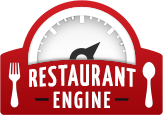5 Restaurant SEO Tips to Boost Your Restaurant’s Visibility in Google
 When searching for a restaurant, potential customers will almost always take to the Internet to find what they’re looking for. And the first place they often go is Google, which accounts for 65% of search engine market share. But the order in which search results are displayed in Google is not random. It’s for this reason then that we must boost your restaurant’s visibility in Google, to ensure your restaurant is ranked highly when potential customers are searching for a place to dine.
When searching for a restaurant, potential customers will almost always take to the Internet to find what they’re looking for. And the first place they often go is Google, which accounts for 65% of search engine market share. But the order in which search results are displayed in Google is not random. It’s for this reason then that we must boost your restaurant’s visibility in Google, to ensure your restaurant is ranked highly when potential customers are searching for a place to dine.
Today, we discuss five search engine optimization (SEO) tips to help increase your rankings and help position your restaurant website above your competitors in Google.
Produce Fresh Content
Google loves a website that is updated with fresh content on a regular basis. Ensure your content is relevant to your audience and is unique. Here are some ideas you can use to help provide a more engaging experience for your potential customers, while also boosting your rankings in Google.
New Blog Posts
Start a weekly blog, detailing the events and news from your restaurant. Whether you have new staff, new dishes or new events, share the details with your customers via your blog.
Ensure the content you write on your blog is relevant and useful to your customers and potential customers. By doing so, positive search engine rankings will follow, while also ensuring you provide a useful resource for your website visitors.
New Reviews
Ask customers to share their reviews or testimonials regarding your service and food, then publish these on a regular basis on your website. Not only is this a great way to generate regular content for your website, it is also a fantastic sales tool when trying to attract new customers.
New Photos and Videos
Customers love photos and videos, and so does Google. Share photos of your latest dish, publish videos of your chef preparing his favourite three course meal, or share your latest event with those that couldn’t make it. All these things are great ways to improve your website for your visitors, while also providing Google with fresh content.
Include Local Keywords in Your Content
Chances are, you only wish to target customers within a very local radius. The same then applies for your website. Ensure your content includes references to the area from which you wish to attract customers, be it your city or neighborhood.
Most customers, when searching for a restaurant, will search for phrases such as “Fine Dining *City*” or “Mexican restaurant *neighborhood*”. It’s very important to include your location within your content, both to clarify to potential customers where you are, but also to benefit from these geographically targeted search terms.
Google Loves More than Text
Just how visitors to your website wish to see more than long pages of text, Google also likes to see other types of media such as photos and videos. By making this a regular occurrence, for example a set of photos once a week as a weekly review of your events and news, you can give Google the fresh content it craves without too much time and effort consumed.
Use Descriptive SEO Titles
 The titles of your web pages are the most important section. They are the section of your website that Google uses to display as its title in the search results. You must ensure your titles are short and descriptive. Try to include your location within them (city or neighborhood), include the type of restaurant you are (fine dining, family etc) and include the type of food you offer (Mexican, bistro, Italian etc).
The titles of your web pages are the most important section. They are the section of your website that Google uses to display as its title in the search results. You must ensure your titles are short and descriptive. Try to include your location within them (city or neighborhood), include the type of restaurant you are (fine dining, family etc) and include the type of food you offer (Mexican, bistro, Italian etc).
Most important of all, ensure your titles are relevant to the content you are publishing, and try to think of what you would search for within Google if you were looking for a restaurant similar to yours.
Define Your SEO Meta Descriptions
 Meta descriptions are the small sentence or two of text that is displayed under the title in a Google search result. These are second in importance to your title discussed above, but still very important. Just like your title, they must be relevant to the content you are publishing.
Meta descriptions are the small sentence or two of text that is displayed under the title in a Google search result. These are second in importance to your title discussed above, but still very important. Just like your title, they must be relevant to the content you are publishing.
Again, try to imagine what you may search for if you were trying to find your website, and then include this phrase, if relevant to the content, in your meta description.
Whatever content you publish on your website, never forget that your ultimate goal is to make it interesting for your website visitors
Restaurant Engine makes it very easy to set SEO titles and meta descriptions. All you need to do is input your title and description in a simple form each time you publish a page or a blog post. It’s as easy as writing and clicking ‘Save’.
Whatever content you publish on your website, never forget that your ultimate goal is to make it interesting for prospects and customers when they visit. Avoid falling in to the trap of publishing content just for search engines. There will be no use getting lots of visitors to your website from Google, only for them to be bored and less than inspired once they visit the site.
By keeping human visitors in mind, your search engine rankings will naturally increase.
Do you receive a high percentage of visitors from Google? Do you publish fresh content on a regular basis? Let us know in the comments below.


I think you misses 1 point. Local Business directory listing. Create profile on local business directories and request your customers to post review there.
You mentioned a good point. I thank you.
لامپ کم مصرف–کرکره برقی–راهبند اتوماتیک–درب پارکینگ–راهبند
How about the changes after Panda and penguin update? Does building links on other sites still has any role to play? I look after marketing for top Indian restaurants The Cinnamon Club, Cinnamon Kitchen an Cinnamon Soho in London. Would be great to hear your thoughts on the sites
http://www.cinnamon-kitchen.com
Good question!
Yes, link building is still relevant, BUT they have to be quality, genuine links. Placing your link in restaurant directories is fine (good for SEO but also good for exposure to that audience of restaurant goers). Creating interesting/valuable content like a blog, which earns links from other sites is also very good (this is something we try to do here on our Restaurant Engine blog :).
But the days of blasting out thousands of links across the web on spammy websites, or leaving spammy blog comments are over. Those tactics will only hurt your standing with Google these days, post Panda and Penguin.
I checked out your website. Looks good! I might suggest looking into mobile optimization. Happy to help…